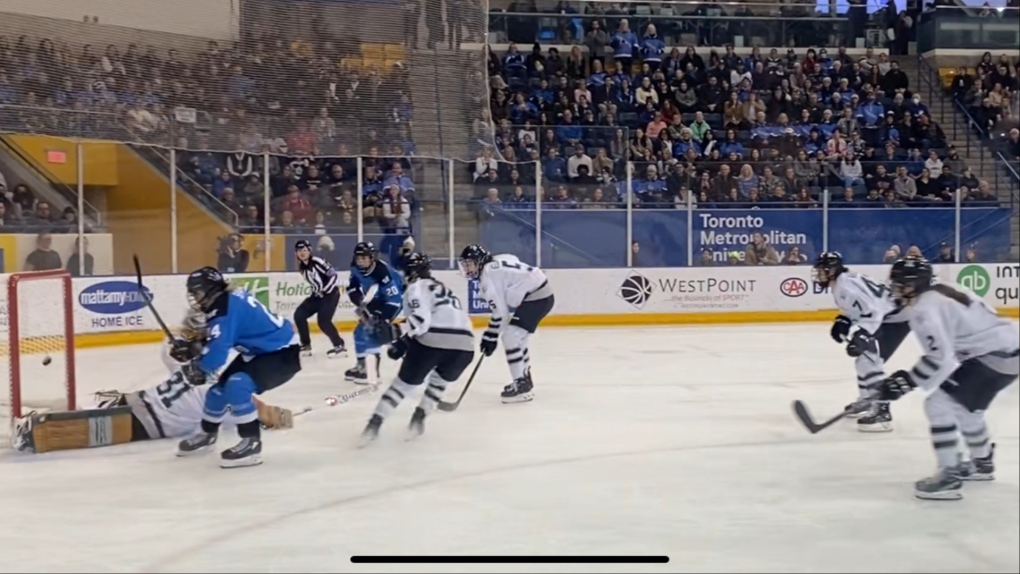The PWHL's success is a chance for women's hockey to 'grow,' Natalie Spooner says
- Download our app to get local alerts on your device
- Get the latest local updates right to your inbox
 At a PWHL Toronto game.
At a PWHL Toronto game. CTVNews.ca Top Stories

War monitor says Assad has fled Syria after rebels enter capital
The head of a Syrian opposition war monitor said early Sunday that Syria’s President Bashar Assad left the country for an undisclosed location.
Canada Post strike: Union 'extremely disappointed' in latest offer, negotiator says
A negotiator for the Canadian Union of Postal Workers (CUPW) says the latest offer from Canada Post to end the ongoing strike shows the carrier is moving in the "opposite direction."
Search for UnitedHealthcare CEO's killer yields evidence, but few answers
As the search for UnitedHealthcare CEO Brian Thompson’s killer goes on, investigators are reckoning with a tantalizing dichotomy: They have troves of evidence, but the shooter remains an enigma.
Digging themselves out: With Santa Claus parade cancelled, Londoners make best of snowy situation
Londoners continue to dig themselves out from this week’s massive snowstorm.
Trump is welcomed by Macron to Paris with presidential pomp and joined by Zelenskyy for their talks
French President Emmanuel Macron welcomed Donald Trump to Paris with a full dose of presidential pomp for the reopening of the Notre Dame Cathedral.
Groups launch legal challenge against Alberta's new gender-affirming treatment law
A pair of LGBTQ2S+ advocate organizations say they've followed through with their plan to challenge Alberta's three transgender bills in court, starting with one that bars doctors from providing gender-affirming treatment such as puberty blockers and hormone therapy for those under 16.
Canada's air force took video of object shot down over Yukon, updated image released
The Canadian military has released more details and an updated image of the unidentified object shot down over Canada's Yukon territory in February 2023.
U.S. announces nearly US$1 billion more in longer-term weapons support for Ukraine
The United States will provide nearly US$1 billion more in longer-term weapons support to Ukraine, Defense Secretary Lloyd Austin said Saturday.
New plan made to refloat cargo ship stuck in St. Lawrence River for two weeks
Officials say they have come up with a new plan to refloat a large cargo ship that ran aground in the St. Lawrence River two weeks ago after previous efforts to move the vessel were unsuccessful.


































